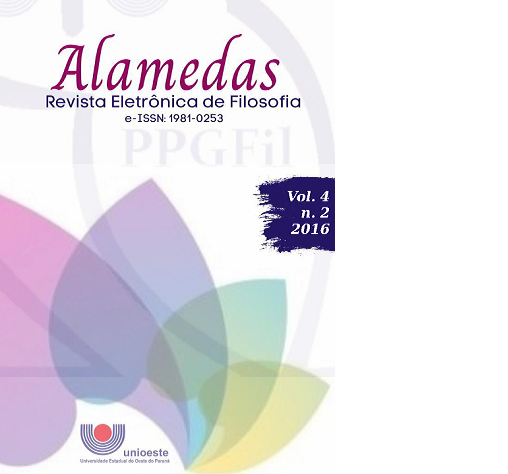SOME LIBERAL ASSUMPTIONS OF HEGEL’S PHILOSOPHY OF RIGHT AND CENTRAL ELEMENTS OF CRITICISM OF THE YOUNG MARX
DOI:
https://doi.org/10.48075/ra.v4i2.15307Keywords:
Filosofia. Estado. Moral. Direito. Liberalismo.Abstract
The article seeks to identify and reflect on some assumptions of the Hegelian work that underlies the political liberalism, as the dual boundary between Law and Morality, as well as their consequences for the design of State and Society. Secondly, analyzes Marx's critique of Hegel's Philosophy of Right from the point of view of the interpretative boundaries of the young thinker with respect to its intellectual father - Hegel, in regards to the no understanding of the strategy and theoretical need for double boundary between law and morals. The article argues that the dialectical inversion of the ideal to the real philosopher of Trier intended to be must be interpreted as an expression of a theoretical love-hate relationship between Marx and Hegel.
Downloads
Published
How to Cite
Issue
Section
License
Copyright (c) 2016 Alamedas

This work is licensed under a Creative Commons Attribution-NonCommercial-ShareAlike 4.0 International License.
Aviso de Direito Autoral Creative Commons
Política para Periódicos de Acesso Livre
Autores que publicam nesta revista concordam com os seguintes termos:
1. Autores mantém os direitos autorais e concedem à revista o direito de primeira publicação, com o trabalho simultaneamente licenciado sob a Licença Creative Commons Attribution que permite o compartilhamento do trabalho com reconhecimento da autoria e publicação inicial nesta revista.2. Autores têm autorização para assumir contratos adicionais separadamente, para distribuição não-exclusiva da versão do trabalho publicada nesta revista (ex.: publicar em repositório institucional ou como capítulo de livro), com reconhecimento de autoria e publicação inicial nesta revista.
3. Autores têm permissão e são estimulados a publicar e distribuir seu trabalho online (ex.: em repositórios institucionais ou na sua página pessoal) a qualquer ponto antes ou durante o processo editorial, já que isso pode gerar alterações produtivas, bem como aumentar o impacto e a citação do trabalho publicado (Veja O Efeito do Acesso Livre).
Licença Creative Commons
Esta obra está licenciada com uma Licença Creative Commons Atribuição-NãoComercial-CompartilhaIgual 4.0 Internacional, o que permite compartilhar, copiar, distribuir, exibir, reproduzir, a totalidade ou partes desde que não tenha objetivo comercial e sejam citados os autores e a fonte.


